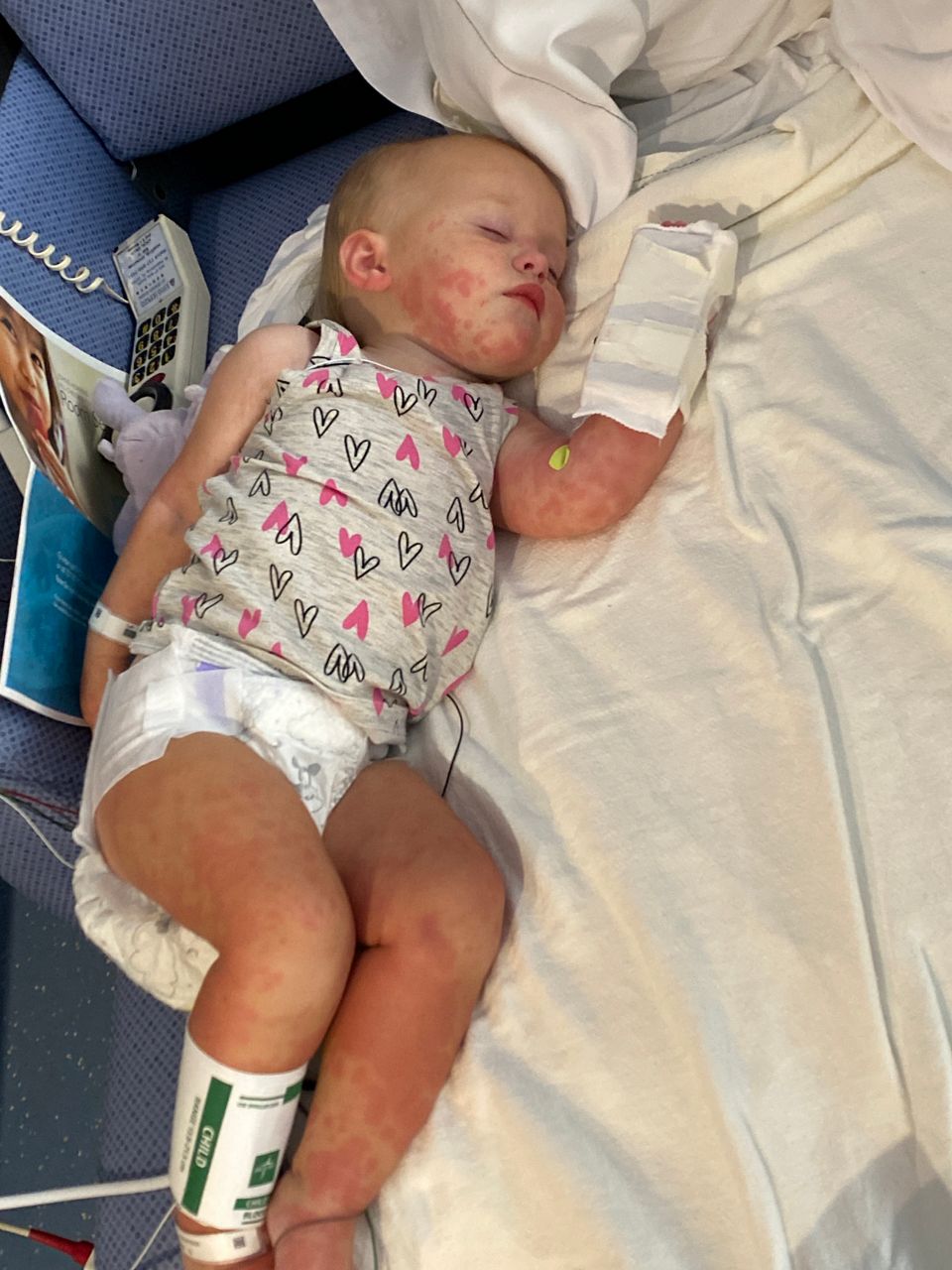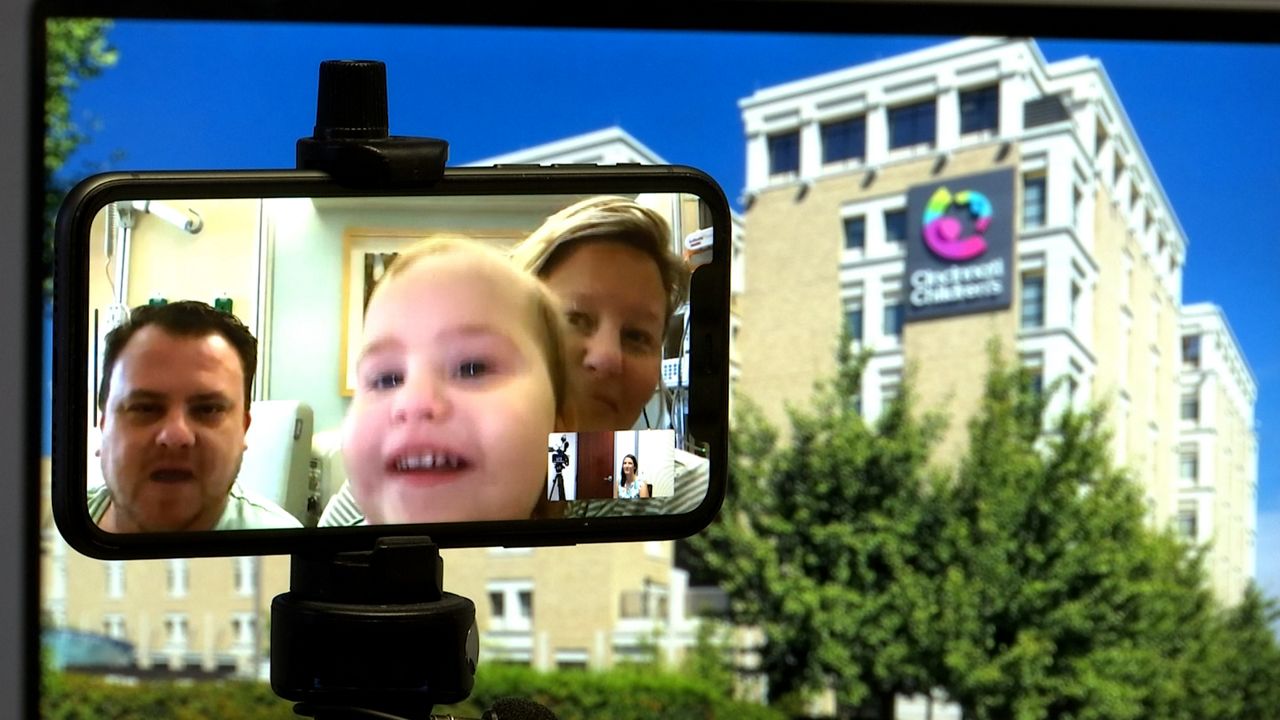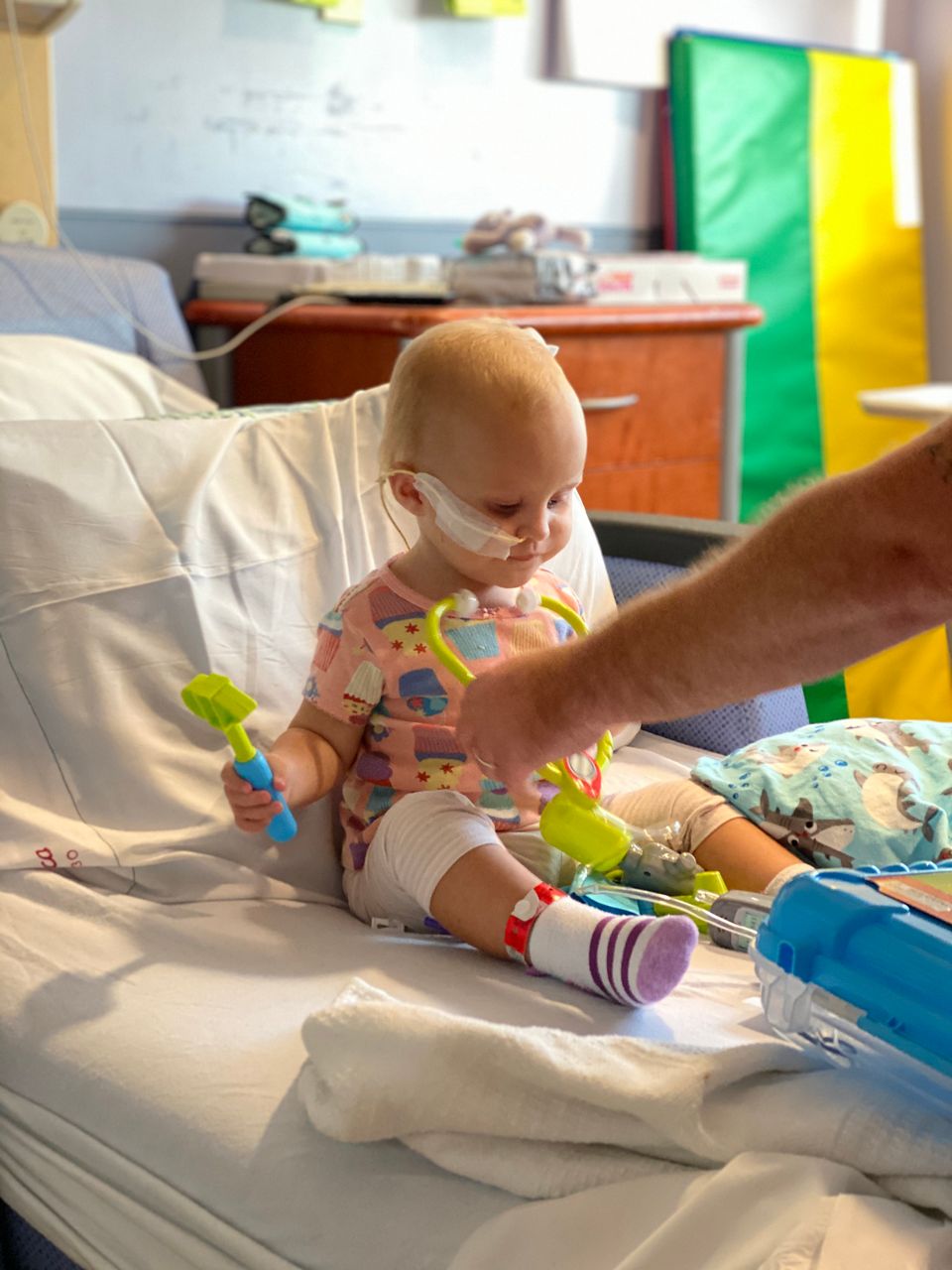CINCINNATI — For weeks, the Tronsdals have managed to fit their entire lives into a small hospital room.
Daniel Tronsdal sleeps on a pull-out couch, his suitcase tucked tightly behind him. Wife, Sarah, squeezes in next to Avery, keeping the 2 year old comfortable as she battles a disease neither of her parents had heard of until last year.

Avery has macrophage activation syndrome (MAS), a complication of a rare condition known as systemic idiopathic juvenile arthritis (SIJA). The two autoimmune disorders are sudden and severe, causing Avery’s body to overreact, attacking her own body.
“Systemic meaning the entire body and idiopathic meaning they don’t know where it comes from,” Sarah Tronsdal said. “Those two things are scary enough then you put the MAS factor with it and if it’s not caught and treated quickly enough, it’s a recipe for almost certain death.”
Her mother said she noticed the symptoms when Avery was about 15 months old. She developed an extensive rash that wouldn’t go away.
“For me, it was a mom-gut thing,” Sarah Tronsdal said. “It had to have been more.”
She took Avery to the hospital in their hometown, St. Petersburg, Florida, where she said Avery was lucky her doctor made a quick diagnosis.
“When she saw Avery and everything that was presenting in her lab work, she knew exactly what it was,” Sarah said. “She said it was the third time she’d seen it.”
The doctor recognized the MAS and started treatment to deal with the inflammation, but the Tronsdals said the hospital lacked the experience to understand all of Avery’s complications and relapses.
That’s when the Tronsdals decided to transfer Avery to the rheumatology department at Cincinnati Children’s for a more personalized treatment.
“It saved her life,” Daniel Tronsdal said.

At Children’s, Avery met her doctor, Dr. Alexei Grom, and got the second piece of her diagnosis. Grom determined that the MAS was a result of SJIA and Avery needed treatment to cope with both.
“As soon as we walked through the door it was like, a sigh of relief,” Daniel said.
Grom co-runs the Grom/Thornton Lab, conducting research focused on understanding and treating MAS as a complication of SJIA. He said he and the Children’s researchers have been working closely with the Cincinnati-based SJIA foundation to move their studies forward.
“Specifically, the foundation now is driven by parents whose children are suffering from systemic juvenile idiopathic arthritis,” he said. “It’s a very dynamic, very well-educated group of people.”
Unfortunately, not long after their first stay at Children’s, the Tronsdal’s returned to Florida and Avery suffered another flare up. That’s when the family decided they needed to make the move to Cincinnati permanent.
“We were here a couple of weeks ago and she was fine,” Sarah said. “Dr. Grom was impressed by the way she was looking it was picture perfect and then you know a week and a half later, she’s you know a fever of 103. It’s so scary to know that we would be 1000 miles away from the one hospital that has all the information to save her life.”

Avery is two weeks into her second stay at Children’s and while her parents know the hospital is doing everything it can to keep her safe and healthy, they have another concern. The rise in coronavirus cases not only threatens their daughter’s weakened immune system, but one of her medications is seeing a surge in demand as an experimental COVID treatment.
Anakinra and Acterma are both used to treat inflammation associated with arthritis by suppressing some immune responses. New research shows they also may help patients with severe coronavirus cases avoid going on a ventilator.
Acterma’s manufacturer reported the drug saw its demand quadruple over the past year, and Cincinnati Children’s reported the hospital is finding it more difficult than ever to fill orders. Sarah said she feels for other SJIA families waiting for their medications and fears her daughter’s medication, Anakinra, might be next.
“Those kids are now going to come into the hospital because they don’t have any medicine and they’re gonna flare and then there’s less hospital beds even still,” she said. “It’s just this continuing circle.”
She believes the best way to help is to slow the spread of the coronavirus and reduce hospitalization trends not just locally, but on a national scale.
“They have a choice to get a vaccine and to not have to have this treatment,” Sarah said. “She doesn’t have a choice. She’s 2 years old.”
The Tronsdals have been documenting Avery's journey here.



